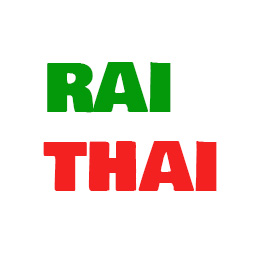To start understanding the answers to many questions about life in Thailand, it’s important to first explore the mindset, spirit, and cultural values of the Thai people. One of the key concepts that helps explain the Thai way of life is the word sabai. Sabai is not just a word—it’s a philosophy, a cultural concept, a lifestyle, and even a life attitude that most Thai people follow. While it can be translated as “comfort,” “ease,” or “relaxation,” sabai includes much more than these simple meanings.
Sabai represents a pursuit of harmony, peace, and enjoyment of life as it naturally unfolds. For Thai people, it’s a state of mind where one feels comfortable, free from stress, and accepts the world as it is. Thai culture emphasizes avoiding conflict, rushing, or pressure, while focusing on maintaining balance and finding joy in small, everyday moments. This philosophy is also reflected in their efforts to create an atmosphere of friendliness, lightness, and mutual respect.
Examples of sabai in daily life and how it contrasts with a European perspective:
- Europeans and the drive for results: For many Europeans, achieving goals quickly, completing tasks efficiently, and being as productive as possible are top priorities. If something goes wrong, it can lead to frustration, stress, and an urgent need to fix the situation. Europeans often rely on strict planning and controlling processes.Thai people and sabai: For a Thai person living with the sabai mindset, maintaining inner peace and calm is much more important, even when things don’t go as planned. Thai people don’t tend to worry about small issues and avoid creating tense situations. For example, being late for a meeting or facing unexpected circumstances isn’t a cause for stress. They might simply say, “sabai-sabai” (everything’s fine, relax) and focus on enjoying the moment.
- Europeans and workaholism: In Western culture, hard work, career success, and achievements are often highly valued. A European might sacrifice rest, personal time, and even health to complete tasks and meet deadlines.Thai people and sabai: Thai people prefer to maintain a balance between work and rest. They believe that work should not become a source of stress. If there’s an opportunity to take a break, relax, and enjoy the moment, they will gladly do so. Sabai is about working without unnecessary tension and keeping a positive outlook on life.
- Europeans and conflict resolution: In European culture, it’s common to address problems directly, discuss issues, and resolve conflicts openly.Thai people and sabai: Thai people, guided by the sabai philosophy, try to avoid conflicts and tense situations. They prefer to smooth over disagreements, smile, and create a peaceful atmosphere rather than escalate a problem. Thai people believe it’s better to compromise than to create unnecessary stress or confrontation.
To truly understand Thai culture and their way of life, it’s essential to grasp that sabai is not just a word but an entire philosophy that influences every aspect of their lives. It’s a mindset focused on ease, harmony, and enjoying the present moment. Sabai helps Thai people maintain a positive attitude, even in challenging situations, and it’s one of the key reasons behind the calm and welcoming nature of Thai society.


